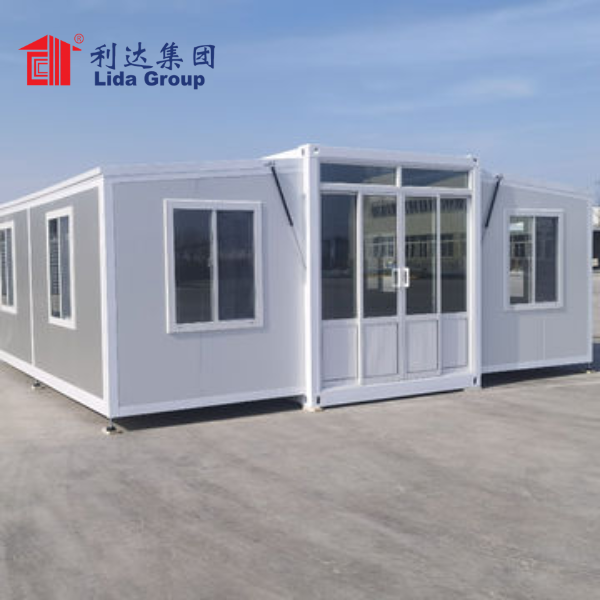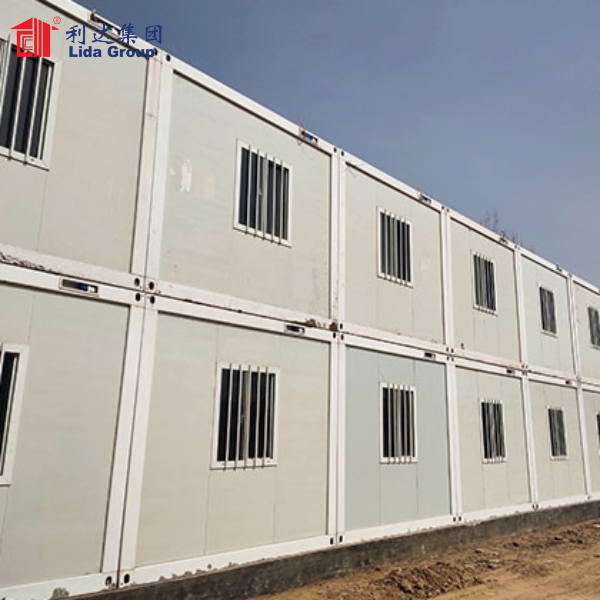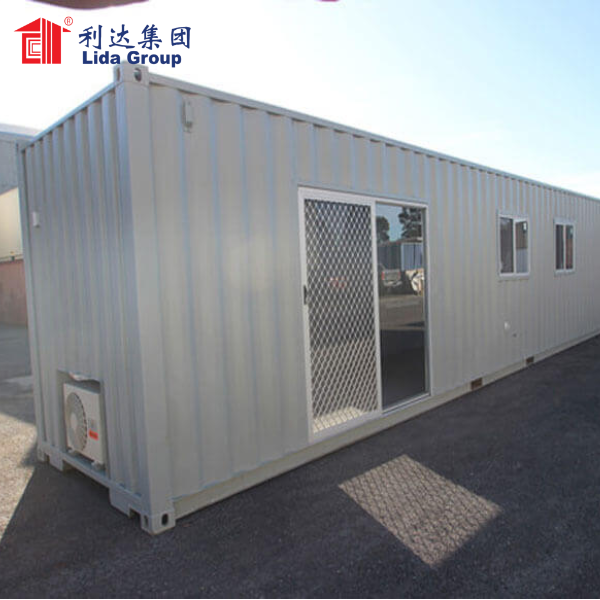Introduction:
Sustainability has become a critical consideration in the construction industry as the world seeks to address environmental challenges. Lida Group, a renowned provider of modular housing solutions, has been at the forefront of promoting sustainable construction practices through their container building projects. These innovative projects utilize repurposed shipping containers to create eco-friendly structures that offer numerous benefits. This article explores Lida Group’s container building projects, their sustainable features, and the positive impact they have on the environment and the construction industry as a whole.
- The Need for Sustainable Construction:
1.1 Environmental Impact of Traditional Construction:
Traditional construction methods often contribute to significant environmental degradation. The industry consumes vast amounts of energy and natural resources while generating substantial waste and greenhouse gas emissions. The extraction of raw materials, transportation of construction materials, and on-site waste disposal all contribute to the industry’s carbon footprint. Sustainable construction practices are essential to mitigate these environmental impacts and promote a greener future.
1.2 Importance of Sustainable Solutions:
Sustainable construction not only helps protect the environment but also offers a range of benefits. It reduces energy consumption, minimizes waste generation, improves indoor air quality, and enhances the long-term durability of structures. Additionally, sustainable buildings often provide better occupant comfort and lower operating costs. To address these concerns, innovative solutions like Lida Group’s container building projects have emerged as a viable alternative to traditional construction methods.
- Lida Group’s Container Building Projects: Sustainable Features:
2.1 Repurposing Shipping Containers:
One of the key sustainable features of Lida Group’s container building projects is the repurposing of shipping containers. These containers, which would otherwise be discarded after their useful life in transportation, are transformed into functional and aesthetically appealing structures. By repurposing shipping containers, Lida Group reduces the demand for new construction materials and minimizes waste generation, making effective use of existing resources.
2.2 Energy Efficiency:
Container building projects by Lida Group prioritize energy efficiency through various design and construction techniques. The containers are insulated to minimize heat transfer and reduce the need for excessive heating or cooling. Furthermore, sustainable energy solutions like solar panels and energy-efficient appliances can be integrated into the structures, further reducing energy consumption and reliance on fossil fuels.
2.3 Water Conservation:
Water conservation is another important aspect of Lida Group’s container building projects. These structures can be equipped with water-saving fixtures, such as low-flow faucets and toilets, as well as rainwater harvesting systems. The collected rainwater can be used for landscaping or non-potable purposes, reducing the strain on local water resources and promoting sustainable water management.
2.4 Sustainable Materials:
Lida Group ensures that sustainable materials are utilized in their container building projects. This includes the use of eco-friendly insulation materials, recycled or reclaimed wood for interior finishes, and low-VOC (Volatile Organic Compounds) paints and coatings for improved indoor air quality. By prioritizing the use of sustainable materials, Lida Group reduces the environmental impact associated with construction while creating healthier living and working environments.
- Benefits of Lida Group’s Container Building Projects:
3.1 Reduced Environmental Footprint:
The use of repurposed shipping containers significantly reduces the environmental footprint of construction projects. By repurposing existing containers, the demand for new construction materials, such as concrete and steel, is reduced, resulting in lower energy consumption and reduced carbon emissions. Additionally, the minimized waste generation contributes to a more sustainable approach to construction.
3.2 Rapid Construction:
Container office projects offer faster construction timelines compared to traditional methods. The modular nature of shipping containers allows for efficient fabrication and assembly, reducing construction time significantly. This accelerated construction process not only saves time but also reduces energy consumption and disruption to the surrounding environment.
3.3 Mobility and Adaptability:
Containers used in Lida Group’s projects are designed to be easily transported and relocated. This mobility and adaptability make container structures suitable for temporary or transitional projects, such as pop-up stores, temporary offices, or disaster relief shelters. The ability to repurpose and relocate these structures reduces the need for new construction in different locations, minimizing the environmental impact.
3.4 Cost-Effectiveness:
Container building projects offer cost-effective solutions for various construction needs. The repurposed containers are often more affordable than traditional building materials, resulting in cost savings. Additionally, the streamlined construction process reduces labor and time requirements, further contributing to overall project affordability. These cost savings make sustainable construction more accessible to a wider range of clients.
- The Impact of Lida Group’s Container Building Projects:
4.1 Promoting Sustainable Construction Practices:
Lida Group’s container building projects have a significant impact on promoting sustainable construction practices. By repurposing shipping containers and incorporating energy-efficient features, these projects exemplify the principles of sustainability in the industry. They serve as inspiring examples for other construction companies and encourage the adoption of eco-friendly practices.
4.2 Fostering Innovation and Collaboration:
Container building projects encourage innovation and collaboration among architects, designers, and construction professionals.The unique challenges and constraints of container-based construction require creative problem-solving and collaboration. Architects and designers must think outside the box to maximize the functionality and aesthetics of these structures. This fosters a culture of innovation within the construction industry and encourages professionals to explore sustainable solutions for future projects.
4.3 Raising Awareness and Education:
Lida Group’s container building projects play a crucial role in raising awareness about sustainable construction practices. By showcasing the benefits and possibilities of repurposed shipping containers, they educate the general public, clients, and industry stakeholders about the importance of sustainable building alternatives. This increased awareness can lead to a shift in mindset and a greater demand for sustainable construction solutions.
4.4 Contributing to Sustainable Urban Development:
Container building projects have the potential to contribute to sustainable urban development. They offer opportunities for affordable housing, temporary structures for events or emergencies, and revitalization of underutilized urban spaces. By repurposing shipping containers, Lida Group’s projects contribute to the efficient use of land and resources, promoting sustainable growth in urban areas.
Conclusion:
Lida Group‘s container building projects exemplify the commitment to sustainable construction practices. By repurposing shipping containers, incorporating energy-efficient features, and prioritizing sustainable materials, these projects offer environmentally friendly and cost-effective solutions. The positive impact of these projects extends beyond the construction industry, promoting innovation, raising awareness, and contributing to sustainable urban development. As the world continues to address environmental challenges, Lida Group’s container building projects serve as a beacon of sustainable solutions, inspiring the construction industry to embrace eco-friendly practices and build a greener future.
Post time: Sep-26-2023



